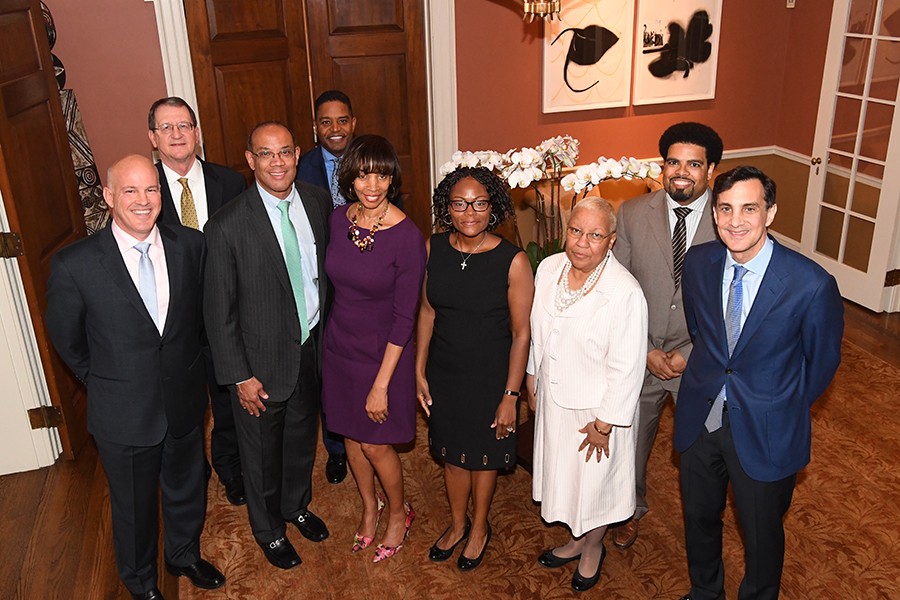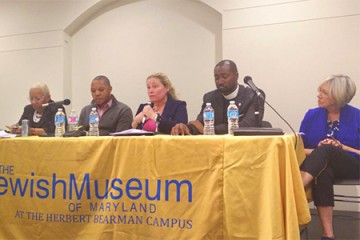In a conversation about the role the private sector can play in uplifting Baltimore, the word "intentional" came up repeatedly Wednesday evening.
Intentional efforts for local recruiting. Intentional spending goals with minority-owned businesses. Intentional partnerships with nonprofits led by people of color.
Ultimately, Diane Bell-McKoy, CEO of Associated Black Charities, cut to the core of what "intentional" means in these contexts: "Be accountable, be transparent, be measurable," she said.
Bell-McKoy and other CEOs and leaders took part in a discussion titled "Investing in Baltimore" at Johns Hopkins University on Wednesday evening. The event was presented by JHU's 21st Century Cities Initiative.
Bell-McKoy and other participants seemed to agree that this approach—setting tangible benchmarks for progress on equity and inclusion—has come into heightened focus in Baltimore in the past few years. McKoy suggested that in the wake of the death of Freddie Gray, the tone of the Baltimore's conversations about wealth equity has changed.
Calvin Butler, CEO of Baltimore Gas & Electric Co., said that although his firm has long engaged in community partnerships in Baltimore, "we weren't intentional, and we weren't communicating our intentionality to others."
Now, Butler said, the utility firm can point to a host of programs and commitments that aim to help Baltimore residents directly, like spending 25 percent of its contracting money with businesses owned by minorities, women, and disabled vets.
JHU President Ronald J. Daniels—who hosted the event in his own backyard on the Homewood campus—said a consensus formed that "the single most important thing that Hopkins could do is contribute to jobs in this city."
The university and health system pursued that goal in earnest with the 2015 launch of HopkinsLocal, an effort to boost local recruiting, investments, and partnerships.
A few months later, 24 other Baltimore-area businesses got on board for a broader collective effort, BLocal). The participating businesses–which include BGE and Under Armour—set a goal of infusing at least $60 million into local and minority-owned businesses over three years.
Ronald R. Peterson, president of the Johns Hopkins Health System, noted a Johns Hopkins effort to train and hire ex-offenders.
"It's a win-win for employers, lowering recidivism rates and providing a second chance" for those hired, he said.
Baltimore Mayor Catherine Pugh likewise pointed to her administration's goal of helping connect ex-offenders to jobs with city agencies. She also touted the growth of the city's summer jobs program, which she said has received 12,500 applications from young people for this summer—an increase of about 4,000 from last year.
"We have a responsibility to make sure they work," Pugh said.
The panel also included Darrick Hamilton, associate professor of economics and urban policy at The New School; Anthony Moag, CEO of Whiting-Turner; John W. Rogers, CEO of Ariel Investments; and Lillian Singh, director of Racial Wealth Divide at the Corporation for Enterprise Development.
Posted in Voices+Opinion, Politics+Society
Tagged baltimore, hopkinslocal, blocal










